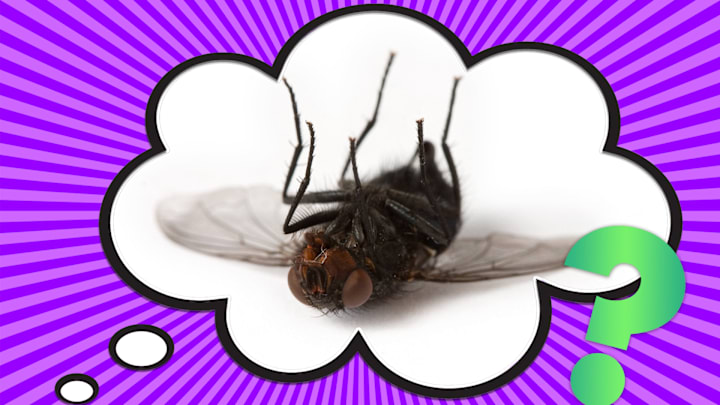The phrase dropping like flies typically doesn’t imply good news about whatever’s doing the dropping. At best, it means a lot of people are leaving something: Tour de France cyclists falling behind a Peloton, celebrities canceling appearances at Fyre Festival, etc. At worst, it means living things in a given category—say, bees—are dying at an alarming rate.
There’s no tidy origin story behind the idiom, which has been around at least since the mid-19th century. One of the oldest written references comes from an 1857 article in London’s The Standard in which the writer bemoans the British government’s habit of deploying soldiers without weather-appropriate attire: “as if the British uniform always carried the British climate along with it.” At the time, troops were headed to India to try to quell what’s now known as the Indian Mutiny or the First War of Independence (among other names).
“As we see them in our streets, buckled, and belted, and shakoed, in the coldest day in winter, they will land at Calcutta and march to Delhi or elsewhere, under a burning sun, dropping like flies upon the road,” the article reads.
In fact, quite a few early mentions of the phrase involved extreme weather. “Men, women and children are dropping like flies throughout Greater New York,” Iowa’s Muscatine Journal reported during a lethal heat wave in July 1901. “Prostrations are running up into the hundreds.”
Why Flies?
There are a couple possible reasons why flies might have seemed like the ideal candidate to illustrate the concept of falling ill or dying, in Merriam-Webster’s words, “over a short period of time and in large numbers.”
For one thing, they don’t live for very long. The lifespan of the housefly typically caps out around four weeks, and fruit flies don’t last much longer than that. They’re also just a lot easier to kill than other organisms: All it takes is one well-timed flick of the fly-swatter.
Cluster flies—similar in appearance to houseflies—could help shed light on how the “large numbers” component of the idiom came to be. These aptly named insects tend to collect in groups where there’s heat, and many find their way into people’s toasty homes to hibernate when the weather begins to cool. They could be clustered in your wall void without your even knowing it. Many of them never end up making it back outside, instead dying from exhaustion as they try—and fail—to escape around your windows and other entry points. In other words, they basically drop … like flies.
Have you got a Big Question you’d like us to answer? If so, let us know by emailing us at bigquestions@mentalfloss.com.
